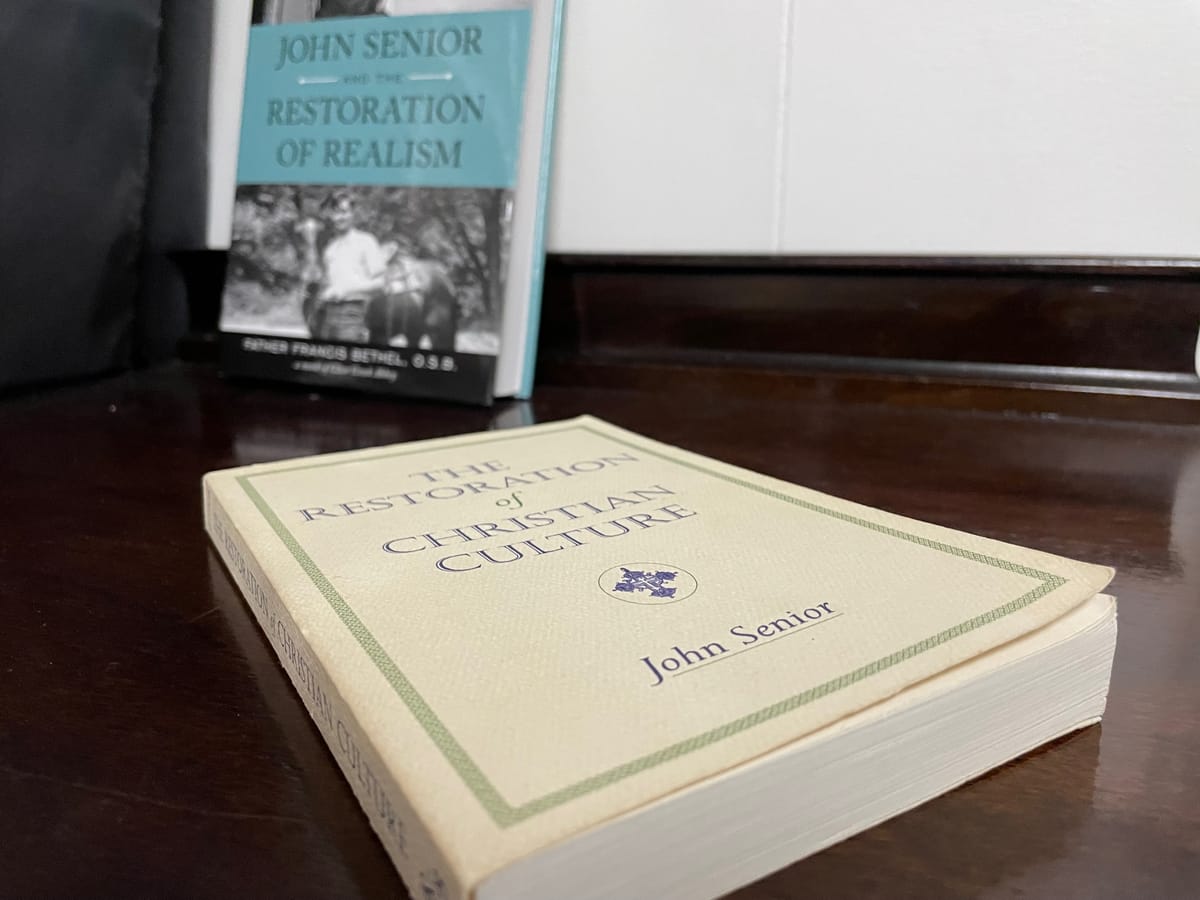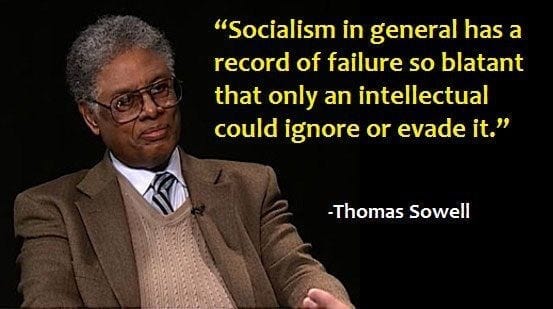Andrew Senior on John Senior, Proponent of Beauty & Tradition
Julian Kwasniewski at The Imaginative Conservative

As I continue to ponder the ideas of the influential Catholic educator and author John Senior on modernity, technology, and Christian culture, I find myself ever more convinced that his work deserves to be better known. Earlier this year, while on a road trip from Texas to Nebraska, I was able to visit his grave, located in a cemetery in St Mary’s, Kansas. In April I wrote an article on Senior’s life and work, and shortly thereafter a friend put me in touch with his son, Andrew.
When I approached Mr Andrew Senior about the possibility of answering some questions about his father, he kindly agreed. Having already written on some of these topics elsewhere, a few of the answers are adapted from Ave Atque Vale Pater, an article by Andrew Senior which appeared in The Remnant, and a reminiscence he wrote for the Spanish edition of The Restoration of Christian Culture.
Julian Kwasniewski: Andrew, thank you for agreeing to this interview. I wanted to speak with you about the work and legacy of your father, John Senior, an influential educator and writer whose vision has inspired several generations of Catholics since the peak of his career in the 1970s. Can you introduce your father to our readers, briefly sketching his life?
Andrew Senior: As my father so often said, citing Aristotle and Thomas, beginnings contain ends. In 1960 my father reached the end of a long and zealous search for truth, being received into the Catholic Church. In 1999 he ended his earthly labors and began his eternal life. The events of the intervening thirty-nine years are legendary.
My father was first and foremost a true philosopher, a lover of wisdom, a student, a seeker of truth, and in addition to this and as a necessary result, he became a great teacher, and more than that, a converter. Everyone who ever met him, even briefly, was affected by his intense love of truth, goodness and beauty. Beginning with his own conversion, he was an instrument of God in converting many others.
After joining the Church while teaching English at Cornell University, he moved to Laramie, Wyoming where he taught at the University of Wyoming. As he said so many times, no sooner was he on board the Barque of Peter than he realized it was time to man the pumps. No sooner had he finally come home to Tradition than he saw her being discarded. Joining the Church at a high tide of conversions and vocations, he soon experienced the massive sea change upon which we are all still trying to keep afloat. He was widely known and respected in the traditionalist movement around the globe; he was among the early great pioneers. He knew and counted as friends men such as Archbishop Lefebvre, Walter Matt, Michael Davies, Fr. Harry Marchosky, Fr. Vincent Miceli, Fr. Urban Snyder, Dr. William Marra, Hamish Fraser, et al.
In 1967 my father left Wyoming for Kansas. For the next sixteen years he struggled through the labors for which he is perhaps most well known. Shortly after coming to the University of Kansas he became acquainted with Dr. Dennis Quinn and Dr. Frank Nelick. With these kindred spirits, though as those who knew them can attest they were temperamentally very different men, he founded what came to be known as the Integrated Humanities Program (IHP).
What began as an “experiment in tradition” under an attempt on the part of a modern university to improve the life of undergraduates with an administrative re-arrangement of deck-chairs soon became, in the hands of my father and his colleagues, a program that channeled grace into the hearts of hundreds of beautiful, innocent young souls. What began as a trickle soon became a torrent, and the Legions in power were not long in noticing and reacting violently. As long as students were just skipping class and bombing buildings and following Abbie Hoffman and Jane Fonda, all was well. But here was a real crisis—students were joining the Catholic Church, and worse yet, some of them were becoming priests, monks and nuns! The inquisitorial University officials discovered that these professors dared to say that there was such a thing as the truth, and that honest and diligent students could find it.
Nonetheless, in spite of existing in a constant state of struggle and the eventual closing of the IHP, miracles occurred. There were so many conversions that to this day nobody knows the real number, and those converts became fruitful and multiplied. Their children and friends continue to be instruments of God in converting others. There are innumerable good souls in various orders, monasteries, convents, dioceses, parishes, courts, colleges, schools, and of course families, throughout the world, who began to fight the good fight back in those good old days in Kansas.
JK: How would you summarize his educational philosophy? He wanted to help his students return to ancient wisdom and pre-modern contact with nature, but wasn’t he actually innovating in trying to create a new mode of education for modern man that had never existed before historically?
AS: I wouldn’t say he was an innovator. I think rather that he re-discovered something which had been lost. Have you ever heard of W. H. D. Rouse and his colleagues (and later Hans Ørberg), who are credited by some with “inventing” the idea of teaching Latin as a living language? If you read Rouse, he says he did not invent it, but re-discovered it. What is now accepted in most schools as the norm is really a modern innovation. In Europe, not just Latin, but all classes were taught in Latin until the end of the 19th century and in some places the old traditions held out even longer.
My father did the same thing with teaching in general as Rouse did with Latin. He went back to the way things were before they were “improved” with modernism. My father didn’t just do this with Latin, he taught all of his classes in the old ways, before the whole modern edifice of education had been constructed. He didn’t teach his students how to “get ahead,” to get better grades, to get into better graduate schools; he didn’t burden or befuddle them with all of the apparatus of modern research methods and scholarship. He purposefully ignored all of that. He had no elaborate schemata or special methods. He simply sought to get his students to see the truth, to know the good, and love the beautiful. He once said that all he really did was read good books and have conversations about them.



